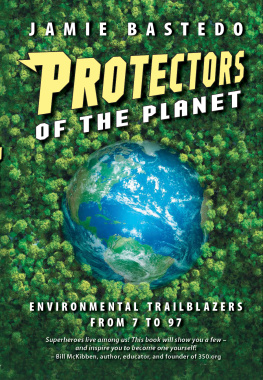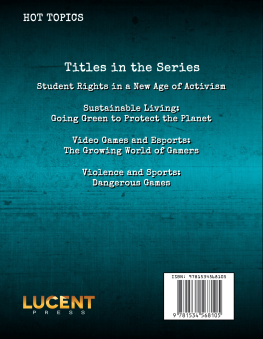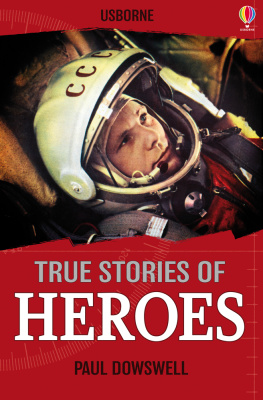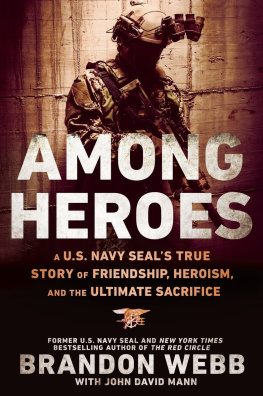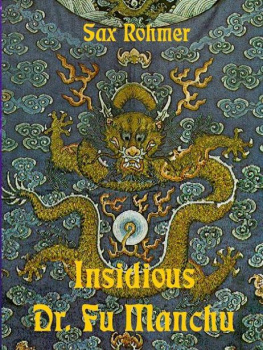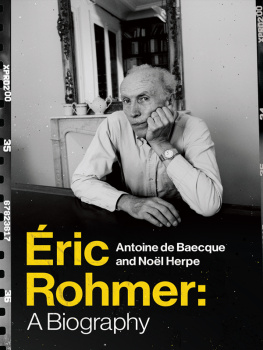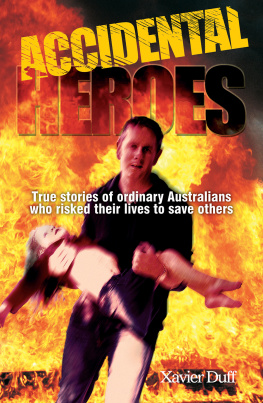paste down

To David, Michael, and Anna H. R.
To my parents and Nicholas Brown J. M.
HEROES OF THE ENVIRONMENT
True Stories of People Who Are Helping to Protect Our Planet
By Harriet Rohmer
Illustrated by Julie McLaughlin

On a beach in Southern California, a teenage girl from Mexico becomes a leader in the fight to protect her town from a dangerous polluter.
In the far north of Alaska, a woman sets out to save a herd of 110,000 caribou.
A young man from New York City finds ways to reuse trash from construction sites so it stays out of landfillsand brings money and jobs to his community.
Here are the true stories of twelve amazing people from across North America who are dedicating their lives to helping the environment. Some of them work to preserve wild places like the Arctic National Wildlife Refuge. Others work to make cities like Milwaukee and Chicago better places to live. Some protect the habitats of animals, and others protect communities where people live.
In every story, youre right alongside the heroes as they take on the problems, overcome obstacles, and find success. In the mountains of West Virginia, youll travel with a coal miners daughter as her grandson inspires her to join the fight against mountaintop removal coal miningand to start to build a wind farm to make energy from windmills.
Youll follow along, step by step, as a teenage boy and his classmates in a small Rhode Island town develop a recycling program for computers and other forms of electronic waste (e-waste), and advise state officials who pass one of the first e-waste disposal laws in the United States.
These twelve heroes represent just a few of the many people who are working today to protect the earth and all its residents. Their stories will inspire you, and youll learn how you can support, joinand even leadefforts to heal our environment, and keep it clean and healthy for generations to come.

One
Raising Food in the City
Growing food is powerful. It can change the world!
Founder, Growing Power Community Food Center Milwaukee, Wisconsin
At 6 feet, 7 inches, Will Allen was a natural at basketball, and thats where he saw his future. An All-American player in high school, he received scholarship offers from more than a hundred colleges. He finally chose the University of Miami, and in 1967, he became the schools first African American athlete.
Going away to college meant leaving the family farm outside Washington, D.C., where he had grown up. He remembered how hard that life had beenselling vegetables door to door at age six, working long days as a teenager when his friends were out having fun. Now that his life was full of possibilities, he swore he would never go back to farming.
After college, Will turned pro. He married, had children, joined a European basketball team, and traveled to Brussels, Belgium, with his family. With time on his hands between practice sessions and games, he found himself visiting the Belgian countryside and hanging out with Belgian farmers. They farmed the way his parents had back home, caring for the land without using chemical pesticides and fertilizers.
When I told my team manager I wanted to grow food again, Will remembers, he got me a place in the country. Before I knew it, I had a big garden and twenty-five chickens.
A few seasons later, Will brought his family back to the United States. He took a sales job with a big household product company in Milwaukee, Wisconsin. After work and on weekends, he started growing food on land owned by his wifes family in Oak Creek, outside the city. Some of the food went straight to his dinner table, and the rest he sold.
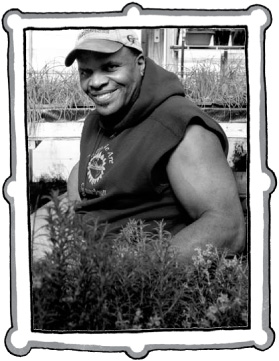
Will Allen at Growing Power Community Food Center, in Milwaukee
Then one day in 1993, while he was driving home from work, Will spotted a For Sale sign on the last remaining farm in the city of Milwaukee. The place was small, only two acres, just a few greenhouses on a plot of land in a partly residential, partly industrial neighborhood. Ideas flashed through Wills head. He could grow food here. He could build a training center for kids. He could farm full-time. He saw an opportunity, and he grabbed it.
But he didnt start farming right away. To farm inside the city, the first key piece is to be anchored into the city. You have to get to know people. They get to know you. Will started learning about his new community and becoming a part of it.
Most people in the neighborhood were not eating well. The supermarkets had moved away to richer neighborhoods where they could make more money. The little stores left behind sold mostly cigarettes and alcohol and food with lots of preservatives that wouldnt go bad on the shelves. The only way to get fresh fruits and vegetables was to take a long trip to the supermarket across town. Folks were living in what I call a food desert, Will says. I knew I had to do something, because you cant have a healthy community without healthy food.
He set up a farm stand to sell tasty greens and vegetables from his Oak Creek farmat prices the neighbors could afford. He taught the kids some new basketball tricks, too. A good player always knows where hes going, he told them. He just doesnt always know how hes going to get there. Will was becoming part of the community. People trusted him and wanted to help him realize his dream of growing healthy food right there in the neighborhood.
With funding from a local church, Will hired some neighborhood teenagers to help him get started. Their first job was to grow new soil, because the soil in the old greenhouses was contaminated by pollution. Will showed them how you can create soil by composting, which means collecting different kinds of food waste and piling it up until it rots and turns into soil. Will explained that when you make compost out of local materials, different businesses in the city can help one another.
In Milwaukee, we have a lot of breweries, so I used the waste from making beer. Its great stuff. We also got food waste from grocery stores, and I hooked up with a coffee seller and got the old coffee grounds. Letting Will take away all this waste helped the beer breweries, the grocery stores, and the coffee sellers avoid expensive trips to the dump. So everyone benefited. We have wonderful soil now, Will says. You throw a seed over your shoulder and it grows.
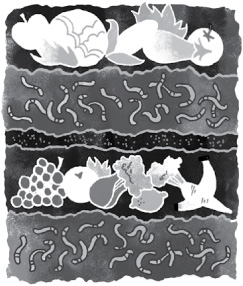
Will brought in thousands of pounds of worms to help fertilize his new plants. In a process called vermiculture, he spread layers of worms between layers of compost (lasagna style). The worms ate up the compost and pooped out whats called worm castings. Amazingly, this worm poop doesnt smell bad at all, and it makes the best fertilizer in the world.
After making good natural soil (out of beer waste and coffee grounds) and the best possible fertilizer for plants (out of worm castings), Will and his teenage helpers, along with volunteers from the neighborhood, started growing food.
Next page

